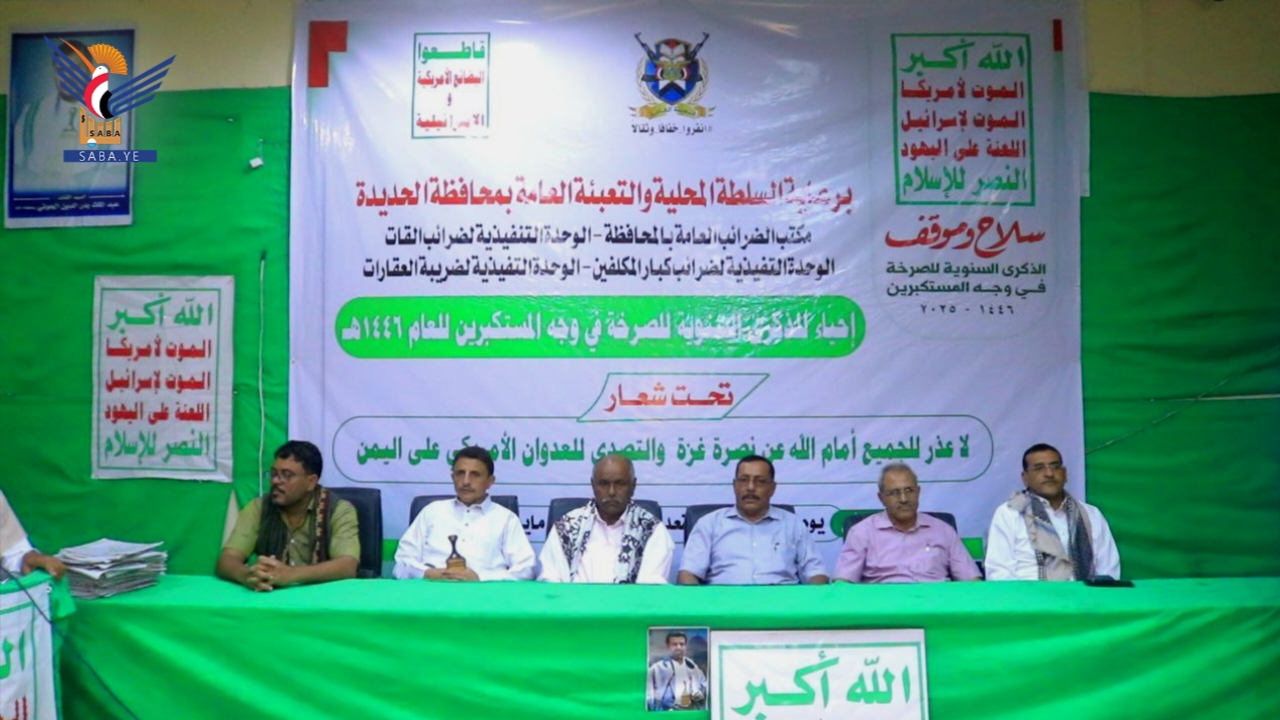Hodeida - Saba:
The Tax Office and units for major taxpayers, qat sales, and real estate in Hodeida province organized a speech event on Monday marking the anniversary of the "Sarkha" (The Cry) against the arrogant powers.
During the event, Hodeida province’s Deputy for Services Affairs, Mohammed Halisi, affirmed that the "Sarkha" carries a message of liberation and defiance, and those who adhere to it cannot be defeated. He emphasized that Yemen’s steadfastness today stems from the awareness project launched by the martyred leader and embodied by the people in all fields.
He praised the spirit of commitment and discipline among Hodeida’s tax employees, stating that cultural events at this level enhance institutional awareness and link professional work to national and cultural dimensions.
The deputy governor stressed that tax offices stand at the forefront economically, playing a vital role in supporting resilience through revenue generation. He noted that recalling the meanings of the "Sarkha" provides employees with additional motivation to perform their duties with dedication and responsibility.
For his part, Hassan Malakdi, Director of the Real Estate Tax Unit, explained that the slogan of the "Sarkha" stems from pure Quranic foundations , has served as an alarm against American and Israeli hegemony since its inception. He called for greater awareness of the project carried by this slogan.
He pointed out that Hodeida’s tax employees, through this event, renew their commitment to the constants of the revolution and the liberation project, affirming that their professional responsibilities are part of the Yemeni people’s battle for resilience, construction, and confrontation.
In turn, Yahya Al-Hajjaji, speaking on behalf of scholars, stated that the "Sarkha" is no longer just a chant but has become a symbol of the identity of a people steadfastly confronting aggression and a means to counter the soft war targeting society’s awareness and principles.
He highlighted the importance of promoting Qur'anic culture among state employees and linking it to daily tasks, stressing that true stances stem from internal faith and that the slogan, in its essence, forms a barrier against cultural infiltration and normalization.

| more of (Local) |




